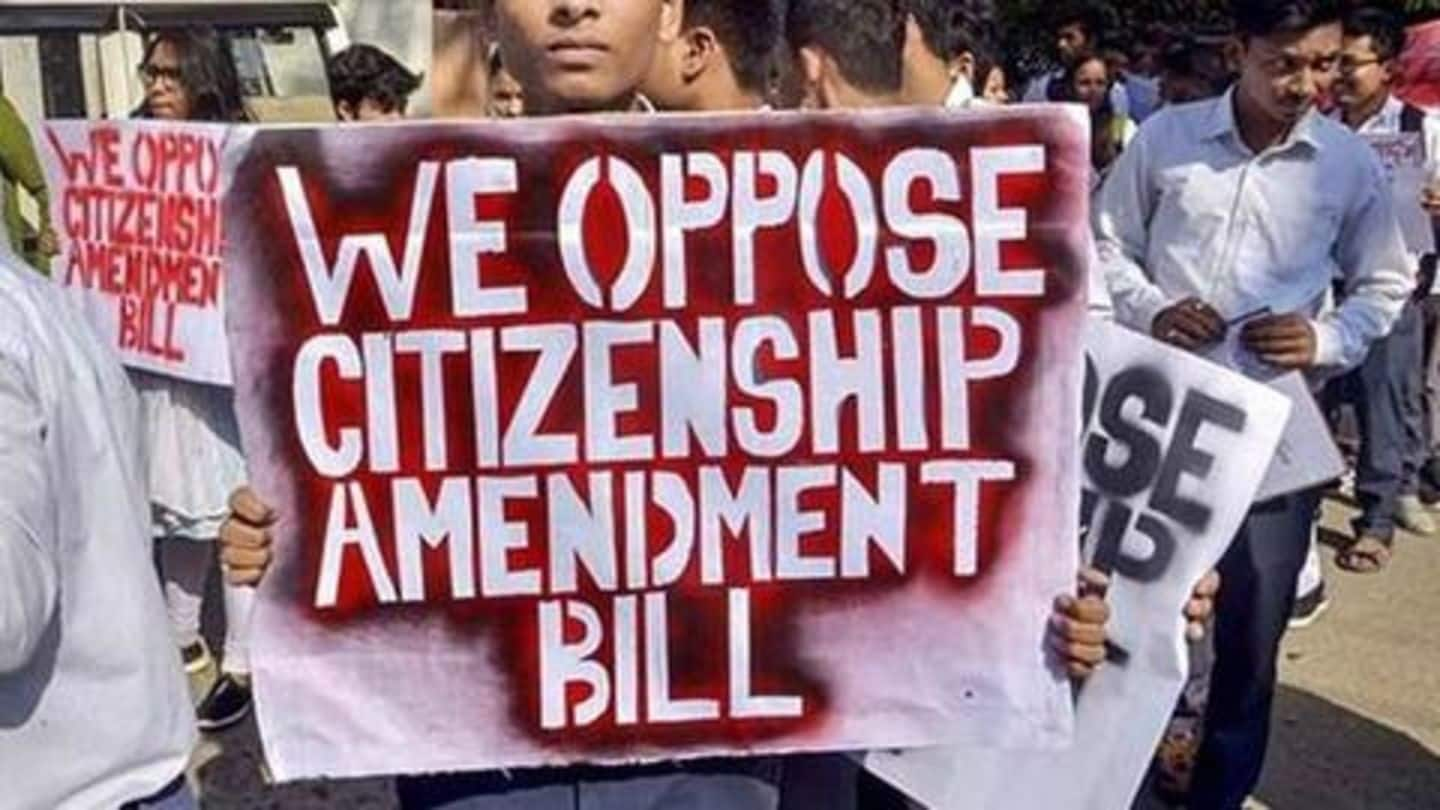
Supreme Court refuses to stay implementation of Citizenship Amendment Act
What's the story
On Wednesday, the Supreme Court refused to stay the implementation of the Citizenship Amendment Act (CAA).
However, the top court issued a notice to the Centre on a batch of petitions challenging the constitutional validity of the amended Act.
The report comes as violent protests against the legislation sweep the nation.
Here are more details.
Details
SC adjourns the matter till January 22
An SC bench, headed by Chief Justice of India Sharad Arvind Bobde and comprising Justices BR Gavai and Surya Kant, asked the Centre to reply on the 59 petitions.
While several lawyers tried to make submissions seeking a stay on the amended Act, the SC refused to do so, and adjourned the matter till January 22, 2020, after it reopens following the winter break.
Information
'CAA guidelines not notified; question of stay doesn't arise yet'
Reportedly, the apex court was told that the question of a stay on CAA does not arise as the rules and guidelines for the same have not been notified yet. The SC bench agreed and refused to pass orders on stay.
Publicize CAA
Centre asked to publicize aims, objects, purposes of CAA
Notably, Advocate Ashwini Kumar Upadhyay told SC, "I visited Jamia, visited Seelampur. People don't know about the Act."
Upadhyay sought directions for the authorities to publicize the aims, objects, and purposes of CAA through media.
The bench turned to Attorney General KK Venugopal, appearing for Centre, to ask his thoughts on the "unusual request," and the latter assured it can be done.
Petitioners
Who are the petitioners?
The first petition against CAA was filed by the IUML on December 12, day after the legislation received Presidential assent.
Thereafter, the SC was moved by several petitioners including MPs Mahua Moitra and Asaduddin Owaisi, NGOs Rihai Manch and Citizens Against Hate, Jan Adhikar Party leader Fazil Ahmed, et al.
The petitions claimed CAA violated Articles 14, 21 and 25 of the Constitution.
CAA controversy
Why the new Act is facing flak, though
The Citizenship Act will make it easier for persecuted non-Muslims from Bangladesh, Afghanistan, and Pakistan to get Indian citizenship.
The critics of CAB, which was passed in Parliament after extensive debate, say the exclusion of Muslims shows the bigoted nature of BJP, which governs Centre.
Meanwhile, Northeast residents are furious as they fear this new law will encourage immigration from Bangladesh.
Details
CAA also violative of Assam Accord: Petitioners
Separately, some of the petitions also contend that the amended Act is violative of the Assam Accord of 1985. The Accord states that those who entered Assam after March 24, 1971, would be detected and expelled as foreigners.
However, as per CAA, any non-Muslim immigrant who entered Assam on or before December 31, 2014, will be granted Indian citizenship.